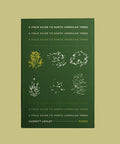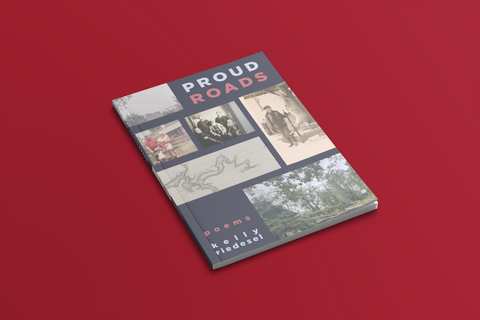
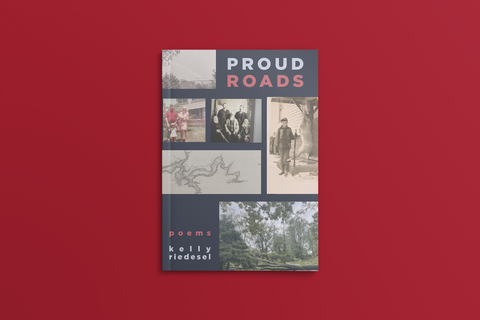
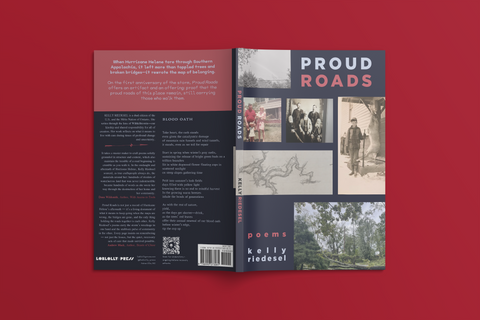
Proud Roads: Poems in the Aftermath of Hurricane Helene
Ships the week of October 6
On the one-year anniversary of Hurricane Helene, Proud Roads bears witness to the storm’s ruin and the stubborn beauty of what remains. In poems that move between elegy and praise song, Kelly Riedesel gathers the voices of Southern Appalachia—neighbors hauling water, bridges holding against the flood, the stubborn roots of kinship—and refuses to let their stories be washed away.
More Info
Learn about the author and the bookWhen Hurricane Helene tore through Southern Appalachia, it left behind more than toppled trees and broken bridges—it rewrote the map of what it means to belong.
In Proud Roads, Kelly Riedesel chronicles the storm’s long wake: the hundred-year-old elders uprooted overnight, the X marks of rescue teams still on front doors, the way “every gust of wind, every snapping branch” startles the body long after the rain stops. Moving through prose-poems, lyric fragments, and echoes of Indigenous storytelling, Riedesel holds space for the uncounted losses—dignity buried in makeshift shelters, roads “rendered flesh at the bottom of chasms”—while also charting the routes back to each other.
Here, survival is not just a matter of endurance, but of care: the neighbor with a chainsaw clearing your way out, the mules carrying supplies over washed-out hollers, the children “watching what care looks like” in real time. Even in the face of climate trauma, Proud Roads insists on the roads—both physical and spiritual—that hold a community together:
“We are flooding back love, standing up when we can, without comment,
sitting down when we must, without guilt, doing the things that keep us proud.”
On the first anniversary of the storm, these poems serve as an artifact and an offering—proof that the proud roads of this place are still here, still carrying those who walk them.
Kelly Riedesel is a Cree-Métis dual citizen of the U.S. and the Métis Nation of Ontario. With a background in Soil and Water Science and Microbiology, she spent her career protecting the land and water, guided by a deep awareness of our impact on the natural world. When disability shifted her responsibility away from environmental work, Kelly turned to poetry as a way to continue to uphold the Cree law of Wâhkôhtowin— the kinship and sacred collective responsibility we have that binds us to both the richness and the suffering of all creation now and in the future. Her work explores what it means to remain in relationship with each other and the land, especially through prolonged uncertainty and change.
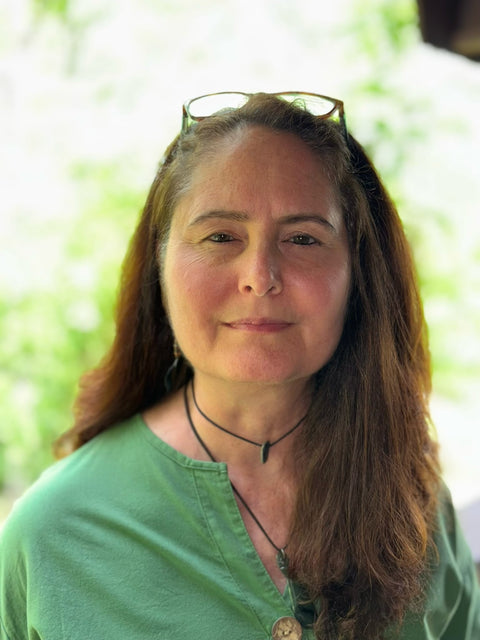
When Hurricane Helene swept through the Swannanoa Valley, it wasn’t just houses and roads that were torn apart. Entire networks of safety—already strained by rising rents and limited resources—were pushed to the breaking point. What emerged in response was a group of neighbors determined not to let their community fall through the cracks. That effort became Swannanoa Communities Together (SCT).
Beth Trigg, one of the founding members, saw firsthand how urgent the housing crisis had become. “There’s such an extreme shortage of housing here,” she said. “There was before the storm, and there sure as heck is now.” Her sister, Mary Etheridge-Trigg, echoed the urgency, noting that many families displaced by the storm want to remain in the Valley but are running out of options.
SCT’s work now stretches far beyond emergency response. At their community hub on U.S. 70, people can find food, shelter support, and case managers who walk with them through the labyrinth of FEMA paperwork, utility shut-offs, and housing searches. Refrigerators and cupboards are kept stocked. Spanish-language resources are made available. Above all, people are met with care.
As Trigg explained, “We’re trying to respond to the highest needs in the community as we’re hearing them.” That means listening directly to neighbors and adjusting in real time. Some days it looks like providing rent assistance to prevent an eviction; other days it’s finding transportation so someone can make a job interview or medical appointment.
The scope of need is overwhelming, but so is the determination. “It’s a total housing meltdown,” Trigg admitted, but added that every dollar raised flows immediately into the community—keeping families sheltered, lights on, and pantries filled.
Etheridge-Trigg sees the work as ongoing, not temporary. “The needs are not going to stop,” she said. “People are helping each other and helping themselves as much as they possibly can.”
What began as mutual aid in the days after Helene has become an ongoing commitment: to stabilize housing, expand food access, and keep neighbors from being pushed out of the place they call home. SCT is writing a future for Swannanoa rooted in dignity, care, and the simple conviction that no one should face disaster—or recovery—alone.
What Others Are Saying
Hear what writers and readers think of Kelly Riedesel's Proud Roads: Poems in the Aftermath of Hurricane Helene.It takes a master maker to craft poems solidly grounded in structure and content, which also maintain the tremble of a road beginning to crumble as you walk it. In the onslaught and aftermath of Hurricane Helene, Kelly Riedesel sourced, as true craftspeople always do, the materials around her: hundreds of rivulets of water/across land that was never indestructible became hundreds of words as she wrote her way through the destruction of her home and her community.
Proud Roads is not just a record of Hurricane Helene’s aftermath — it’s a living document of what it means to keep going when the maps are wrong, the bridges are gone, and the only thing holding the roads together is each other. Kelly Riedesel’s poems carry the storm’s wreckage in one hand and the stubborn pulse of community in the other. Every page insists on remembering — not just the losses, but the quiet, necessary acts of care that made survival possible.
We are flooding back love,
standing up when we can, without comment,
sitting down when we must, without guilt,
doing the things that keep us proud.


